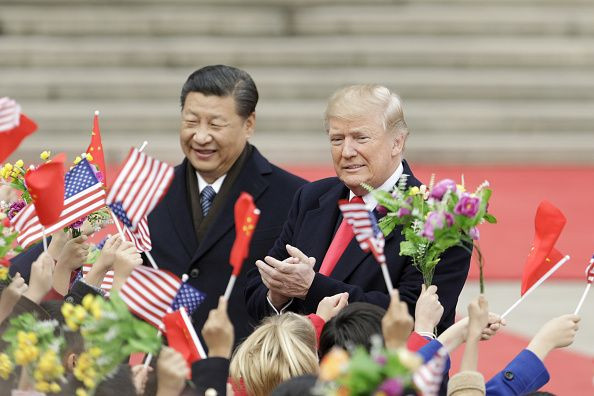China Escalates Trade War With Tariffs On $60B Of US Exports

(Updated with analyst comments)
China said Monday it will raise tariffs on $60 billion worth of U.S. goods from June 1, in retaliation to the United States raising tariffs on $200 billion of Chinese exports from 10 percent to 25 percent. An analyst called it a "gentle response" from China in order to keep the door open to further negotiations.
Monday's Chinese action came soon after Trump had tweeted out that without a deal, China will be hurt so badly that there will be nobody left in the country to do business with. The timing could have been a mere coincidence but nevertheless showed that the Chinese weren't going to fold before Trump's pressure tactics.
The Trump administration had cast the decision to raise tariffs as applying pressure on China to agree to a deal. Both sides held a round of talks Friday in Washigton on resolving contentious trade issues, but with little progress to show.
ING economist Timme Spakeman said in a note that "with the meeting in Washington and this gentle response, China aims to keep the door open for further negotiations on a trade deal and contain further escalation."
Spakman said that "if the U.S. were to expand its tariff measures, China is expected to continue to retaliate in a similar mild fashion as today. This, because it is difficult for China to retaliate with equal measures since China imports a lot less from the U.S. than the other way around. However, this is not the only reason. With its mild response, China also maintains the moral high ground in the conflict."
Wall Street indexes fell more than 2 percent following the tariff hike by China. The latest shot in the trade war will see tariffs on some 5,000 U.S. goods go up as much as 25 percent, CNBC reported. Some others will see tariffs rise to 20 percent. The existing rates on these goods were either 10 percent or 5 percent.
Trump tweeted early Monday morning that had had told "openly to President Xi & all of my many friends in China that China will be hurt very badly if you don’t make a deal because companies will be forced to leave China for other countries."
He also warned: "There will be nobody left in China to do business with. Very bad for China, very good for USA!"
The statement from the Tariff Policy Commission of China's cabinet came a couple of hours after the tweet. The BBC reported that the Chinese foreign ministry spokesman Geng Shuang told a news briefing in Beijing that China would "never surrender to external pressure."
In an interview to Fox News on Sunday, Larry Kudlow, the Director of the National Economic Council, acknowledged the Chinese government doesn’t directly pay tariffs on goods coming into the U.S. from China as Trump had claimed, and that "both sides will suffer on this."
© Copyright IBTimes 2025. All rights reserved.



















